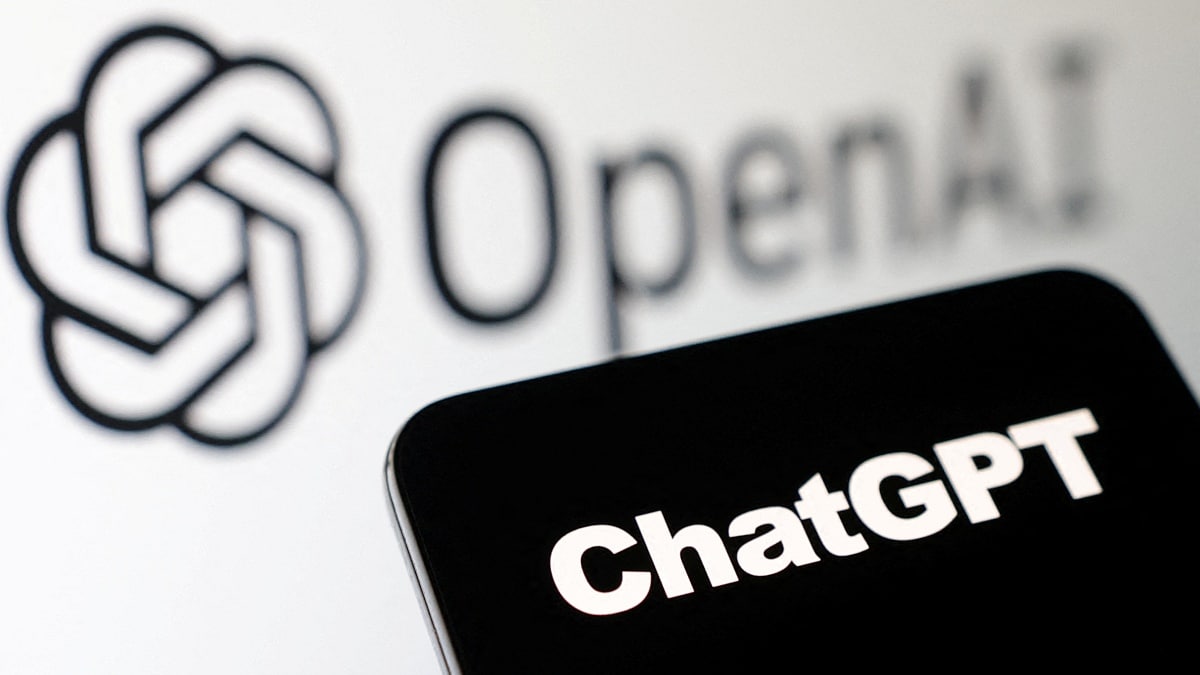FTC Investigation Into OpenAI's ChatGPT: What You Need To Know

Table of Contents
The Focus of the FTC's Investigation into ChatGPT
The FTC's concerns regarding ChatGPT center on potential violations of consumer protection laws. The agency is likely scrutinizing OpenAI's practices concerning data privacy, algorithmic bias, and the potential for misinformation spread by the powerful chatbot. Specifically, the investigation is likely probing these areas:
-
Data Privacy Violations: ChatGPT collects vast amounts of user data. The FTC is likely investigating whether OpenAI complies with data privacy regulations regarding the collection, storage, and use of this data, including compliance with laws like CCPA and GDPR for users outside the US. Concerns exist about the potential for unauthorized access or misuse of this sensitive information.
-
Potential for Misinformation and Harmful Content: ChatGPT's ability to generate human-quality text raises concerns about its potential misuse for creating and spreading misinformation, hate speech, and other forms of harmful content. The FTC's investigation will likely examine OpenAI's efforts to mitigate these risks.
-
Algorithmic Bias and Discriminatory Impacts: AI models like ChatGPT can inherit and amplify biases present in their training data. The FTC's investigation will likely assess whether ChatGPT exhibits bias in its responses, leading to discriminatory outcomes for certain groups.
-
Lack of Transparency in ChatGPT's Workings: The "black box" nature of many large language models raises concerns about accountability. The FTC may be examining OpenAI's transparency regarding ChatGPT's decision-making processes and how it handles user inputs.
-
Potential for Deceptive Marketing Practices: The FTC might be investigating whether OpenAI's marketing materials accurately represent ChatGPT's capabilities and limitations. Overly optimistic claims could constitute deceptive marketing.
Potential Consequences for OpenAI
If found in violation of consumer protection laws, OpenAI faces several potential consequences:
-
Significant Fines: The FTC has the authority to impose substantial financial penalties for violations. The amount could depend on the severity and extent of the violations.
-
Mandatory Changes to ChatGPT's Operations and Data Handling Practices: The FTC could mandate changes to ChatGPT's design, data handling procedures, and operational practices to improve user privacy and safety.
-
Reputational Damage: Negative publicity surrounding the investigation could damage OpenAI's reputation, impacting user trust and investor confidence. This reputational damage could significantly hinder future growth.
-
Legal Limitations on Future Development and Deployment of AI Models: The FTC could impose restrictions on OpenAI's future AI development and deployment, potentially slowing down innovation in the field.
Implications for ChatGPT Users
The FTC's investigation has potential implications for ChatGPT users, both positive and negative:
-
Increased Data Privacy and Security: The investigation could lead to improved data privacy and security measures implemented by OpenAI, ultimately benefiting users.
-
Improved Accuracy and Reduced Bias in ChatGPT's Output: The FTC's actions may push OpenAI to enhance its algorithms to reduce bias and improve the accuracy of ChatGPT's responses.
-
Greater Transparency about How ChatGPT Functions: Increased regulatory scrutiny could lead to greater transparency from OpenAI regarding ChatGPT's workings and decision-making processes.
-
Potential Limitations on Certain ChatGPT Functionalities: To address safety concerns, some ChatGPT functionalities might be restricted or modified.
The Broader Impact on the AI Industry
The FTC Investigation into OpenAI's ChatGPT sends a clear message to the broader AI industry: increased regulatory scrutiny is coming. This investigation's outcomes will likely have these wider effects:
-
Increased Regulatory Scrutiny of AI Development and Deployment: Other AI developers will face heightened scrutiny from regulatory bodies, leading to more cautious development practices.
-
Potential for New Regulations and Standards for AI Systems: The investigation could pave the way for new regulations and industry standards designed to ensure the responsible development and deployment of AI systems.
-
Influence on the Ethical Considerations Surrounding AI Development: This investigation highlights the urgent need for ethical considerations in AI development and deployment. It could spur more robust discussions and initiatives focusing on AI ethics.
-
Impact on Innovation and Competition in the AI Market: While increased regulation might slow innovation in certain areas, it could also level the playing field and foster more responsible competition in the long run.
Conclusion: Navigating the Future of AI in Light of the FTC Investigation into OpenAI's ChatGPT
The FTC's investigation into OpenAI's ChatGPT is a pivotal moment for the AI industry. The potential outcomes—ranging from substantial fines to significant operational changes—will have far-reaching consequences for OpenAI, its users, and the broader AI landscape. The investigation underscores the critical need for responsible AI development and deployment, prioritizing user privacy, algorithmic fairness, and the prevention of misinformation. To stay informed about this evolving situation and its implications, follow updates on the FTC's activities and engage in responsible discussions surrounding AI ethics and regulation. Further research into "FTC AI regulations," "OpenAI legal challenges," and "ChatGPT ethical concerns" is crucial for understanding the future of AI.

Featured Posts
-
 Complete 2025 Padres Broadcast Schedule Where To Watch And Listen
May 15, 2025
Complete 2025 Padres Broadcast Schedule Where To Watch And Listen
May 15, 2025 -
 Congos Cobalt Export Ban Market Impact And The Awaiting Quota Plan
May 15, 2025
Congos Cobalt Export Ban Market Impact And The Awaiting Quota Plan
May 15, 2025 -
 Tuerk Devletlerinden Kktc Ye 12 Milyon Avro Uzman Goeruesleri Ve Degerlendirmeler
May 15, 2025
Tuerk Devletlerinden Kktc Ye 12 Milyon Avro Uzman Goeruesleri Ve Degerlendirmeler
May 15, 2025 -
 Revolutionizing Voice Assistant Development Key Announcements From Open Ais 2024 Event
May 15, 2025
Revolutionizing Voice Assistant Development Key Announcements From Open Ais 2024 Event
May 15, 2025 -
 N Kh L Rekordsmen Po Silovym Priemam Ukhodit Iz Khokkeya
May 15, 2025
N Kh L Rekordsmen Po Silovym Priemam Ukhodit Iz Khokkeya
May 15, 2025
